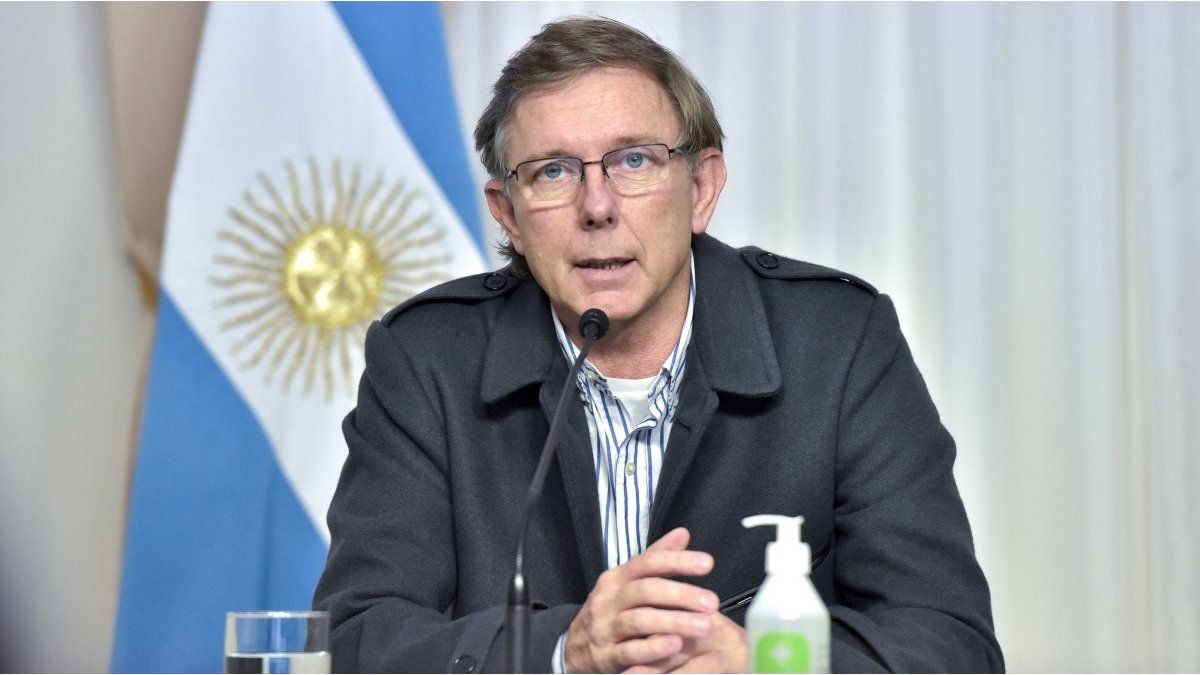The political activity of Juan José Bahillo still intact. When he left his position as a national official, after the elections in which La Libertad Avanza came to Government, the former head of the agricultural portfolio began a new stage as a provincial deputy for Unión por la Patria in Entre Ríos, although he follows reality very closely. of agricultural producers. This occurs not only for a professional reason but also because Bahillo himself is an agricultural producer and his family is linked to the dairy business, among others.
Last week, Bahillo published on the social network Fernando Vilella as responsible for the “agrobioindustrial” policy of Argentina. When asked about this topic, he explained that he observes “with concern the political definitions of the national government, because it marks its view of the country in terms of production only from the fiscal, tax and monetary aspects. He is not known to have a single measure or political decision that promotes the development of the primary sector, regional economies or the industrial sector. There are no policies that promote value addition, the development of new markets, the evolution of biotechnology or financing tools.”
When asked about the urgent needs in economic terms that Argentina has, the current provincial deputy in Entre Ríos recognized that “corrections must be made in fiscal and tax matters, but the plan has to be productive and from there the corrections must be made.” to generate more work, more production and more dollars for Argentina.”
The truth is that the illusion of lowering or removing withholdings on production (whether agroindustrial or of any kind) is precisely that, an illusion that politics forgets or postpones when those who promote that idea come to the Government and must manage the resources. of the state. Watching the game from the stands is very different from putting on your boots, suffering the opponent’s kicks and at the same time trying to score a goal. Even more so when you enter the second half and there is almost no room for criticism about the previous stage.
This is precisely what happened with the arrival of Sergio Massa to the Government and Bahillo highlighted it by stating that “as of August 2022 we assume a very extreme, very complex situation. There was talk about the end of the mandate and other very delicate issues, with practically no reservations. To this we must add that we had to go through the worst drought in history and that aggravated the context even more. That is why we had to make decisions that had to do with macroeconomics, with liquidation and with generating the necessary dollars more than with productive measures, but the responsibility of the moment demanded that. Even so, we had 21 programs that reached the different sectors because it was a management that was close, present, with sensitivity and empathy, understanding the problems that the producer suffered in the context of the drought. That is why I see with great concern that there are no specific policies for our producers.
Outlook for the 2023/24 campaign
Although the agricultural cycle suffered the impact of the heat wave during the last two weeks, in several productive regions the water arrived and part of the soybean and corn crops could be recovered. It is undoubtedly very premature to draw a conclusion, but the agricultural campaign would be among the best in recent years. It will not be a record and there will be areas affected by the lack of rain, but the total harvest will surely be above 130 million tons.
When asked about this situation and the economic emergencies that Argentina has, Bahillo explained that the producers “are worse in a better context”. He added that “we are going to have a normal harvest, a record was expected but it will be normal, versus what was the worst harvest in history. This worsening of the producer’s situation is fundamentally due to the devaluation of more than 100%, which had a strong impact on costs, plus the 10-point increase in the country’s tax, which directly impacted inputs, plus the 100% increase. of the fuel. If we measure the real margin, the producer’s profitability is significantly hurt by the decisions that this Government has made.”
Does Milei punish the interior?
After an intense week as a result of parliamentary work, which concluded with the confirmation that the Government will withdraw the so-called “omnibus law”, the relationship between the executive branch and the provinces was strained to levels never seen before. In this sense, Bahillo said that “it is not on the basis of adjustment that we are going to solve the problems, but on the basis of a path of growth, in which we will surely all have to make an effort.” He explained that it will be necessary to agree with the productive sectors and not fight with the governors who represent the interior.
According to Bahillo, Milei “punishes the interior, the citizens. When he eliminates the sending of discretionary funds to the provinces under a prejudice and preconception that these funds are poorly spent, poorly allocated. In reality they have to do with infrastructure works, irrigation canals, with routes, with a lot of realities that in the interior are infrastructure works that if the State does not do them, no one does them.”
Less power for Vilella
Last week a resolution was published in the Official Gazette by which the Undersecretary of Financial Administration is eliminated from the orbit of the Ministry of Agriculture. According to Bahillo, who knows perfectly the framework of each of the departments of public organizations, all this “takes away from the secretary a very valuable tool in management since he loses the possibility of having budgetary strategies, credit administration, supervising the assigned budget quotas, defining relationships and priorities, among others.”
Vilella, who during the electoral campaign campaigned in favor of Facundo Manes so that radicalism would reach the presidency of the Nation, will have to face in the coming days several questions on very specific issues in the agricultural sector, such as Argentina’s adhesion to a multilateral agreement that would impose changes in the way seeds are marketed in our country, something that generated widespread rejection among grain producers.
Source: Ambito




